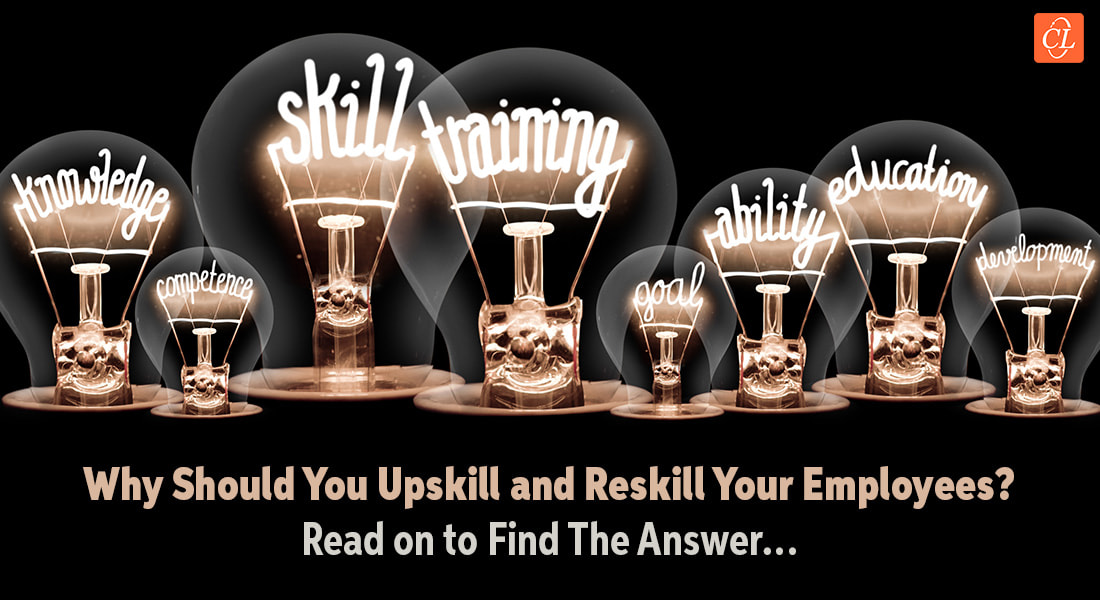2025’s Workforce Revolution: What Every L&D Manager Needs to Know!

In today’s fast-evolving workplace, organizations must adopt innovative strategies to remain competitive and create a thriving workforce. From reshaping employee training and development approaches to prioritizing employee well-being, the key lies in staying ahead of trends and addressing employees' changing needs.
→ Download eBook: Corporate L&D Trends 2025 – Get the View from the Trenches
In this blog, we explore five strategies to build a future-ready workforce and align learning and development with business goals.
Table of Content
- Rethinking Training Strategies
- Prioritizing Employee Well-Being
- Creating a Future-Ready Workforce
- Enhancing Workforce Collaboration and Culture
- Aligning Training with Business Goals
1. Rethinking Training Strategies
Traditional corporate training programs are no longer sufficient to meet the demands of modern workplaces. It’s time to embrace new approaches.
AI-Powered Learning
Artificial intelligence is revolutionizing corporate training with personalized learning. AI tools identify employee skill gaps and recommend tailored content for faster upskilling and reskilling.
Immersive Strategies
Gamification and video-based learning engage employees better, making training more interactive and enjoyable. These methods appeal to diverse learning styles and ensure higher retention rates.
Staff Augmentation for Skill Gaps
To tackle skill shortages, companies are turning to staff augmentation. By temporarily bringing in specialized professionals, organizations can bridge knowledge gaps while upskilling their current workforce.
2. Prioritizing Employee Well-Being
A motivated workforce starts with employees who feel supported and valued. Organizations are increasingly focusing on holistic employee well-being.
Mental Health Support
Managers are being trained to identify burnout and support their teams. Programs like mindfulness workshops and resilience-building exercises empower employees to manage stress effectively.
Work-Life Balance Initiatives
Flexible work policies, such as remote work options or compressed workweeks, help employees balance personal and professional commitments. Time management training also reduces work-related stress and improves productivity.
Holistic Wellness Programs
Companies are introducing virtual fitness sessions, ergonomic assessments, and counseling services to address physical and emotional wellness.
Looking to boost team morale and productivity? Here are some innovative employee wellness program ideas every training manager should know!
3. Creating a Future-Ready Workforce
The future of work demands adaptability, and organizations must invest in upskilling, reskilling, and leadership development.
Upskilling and Reskilling
With AI and automation on the rise, employees need new skills like AI literacy, problem-solving, and using modern AI tools effectively. These tools are reshaping workflows, making it essential for professionals to learn prompt engineering —creating precise inputs for optimal AI results.
Leadership Development
Hybrid workplaces require leaders who can effectively manage virtual and in-person teams. Corporate training programs now focus on emotional intelligence, decision-making, and communication to groom future leaders.
4. Enhancing Workforce Collaboration and Culture
Increased collaboration and a strong workplace culture are essential to fostering innovation and employee satisfaction.
Cross-Functional Collaboration
Connecting diverse teams fosters creativity, better communication, and shared goals. Tools like project management software and regular cross-department meetings streamline workflows, improve knowledge sharing, and strengthen relationships.
Celebrating Contributions
Recognizing employees’ efforts is key to motivation. Gamified recognition systems, such as points and badges, and public acknowledgment of successes during all-hands meetings boost morale and create a sense of belonging.
Inclusive Culture
Embedding Diversity, Equity, and Inclusion (DEI) in all aspects of employee training and development ensures every employee feels valued. Technology-driven accessibility and adaptive content make workplaces more inclusive for everyone.
Wondering if your workplace is truly ready to embrace DEI? Let’s break it down and unlock the key to success!
5. Aligning Training with Business Goals
Effective corporate training solutions must contribute directly to organizational success. Businesses are aligning learning and development with measurable outcomes.
Outcome-Driven Programs
Employee training initiatives are now tied to business metrics like sales growth or employee retention. Data visualization tools help track ROI and demonstrate the impact of these programs.
Agile Learning Frameworks
Organizations are adopting iterative training cycles that can be quickly adjusted to meet evolving business priorities. This ensures that corporate training stays relevant and impactful.
Final Thoughts
Building a future-ready workforce requires a multi-pronged approach that combines innovative employee training, well-being initiatives, and technology-driven solutions. By investing in employees and aligning their growth with business goals, organizations can create a thriving workplace that’s prepared for the challenges of tomorrow.
Want to stay ahead of the competition and prepare your workforce for the future? Download our comprehensive eBook on Corporate L&D Trends 2025 and uncover the latest innovations, strategies, and tools to future-proof your team and drive success in a rapidly evolving world.







![How Can Upskilling & Reskilling Solve Business Problems? [ANSWERED]](https://blog.commlabindia.com/hubfs/blogs/upskilling-reskilling-strategies-corporate-training.jpg)

![Do You Know the Real Rapid eLearning? [SlideShare]](https://blog.commlabindia.com/hubfs/Imported_Blog_Media/rapid-elearning-faster-custom-elearning-slideshare.jpg)